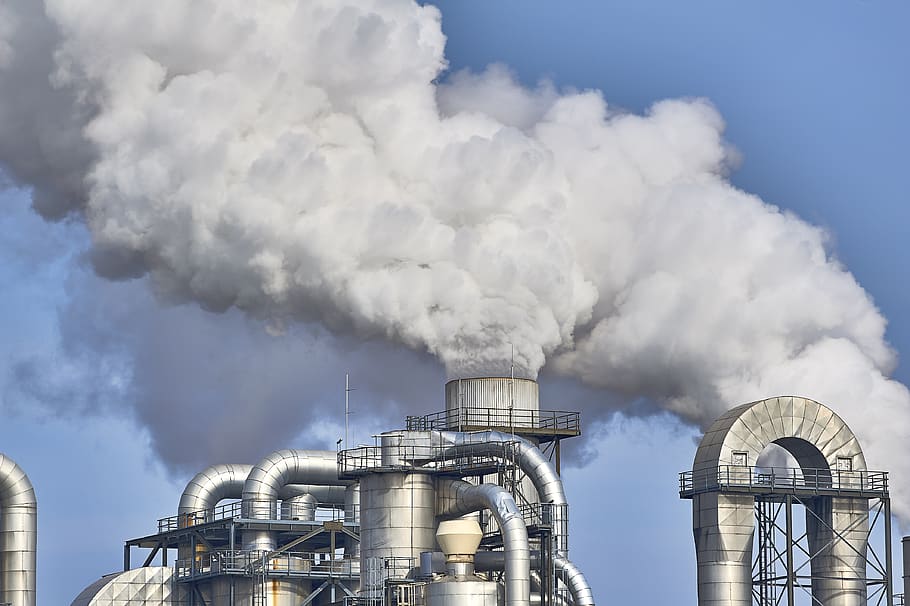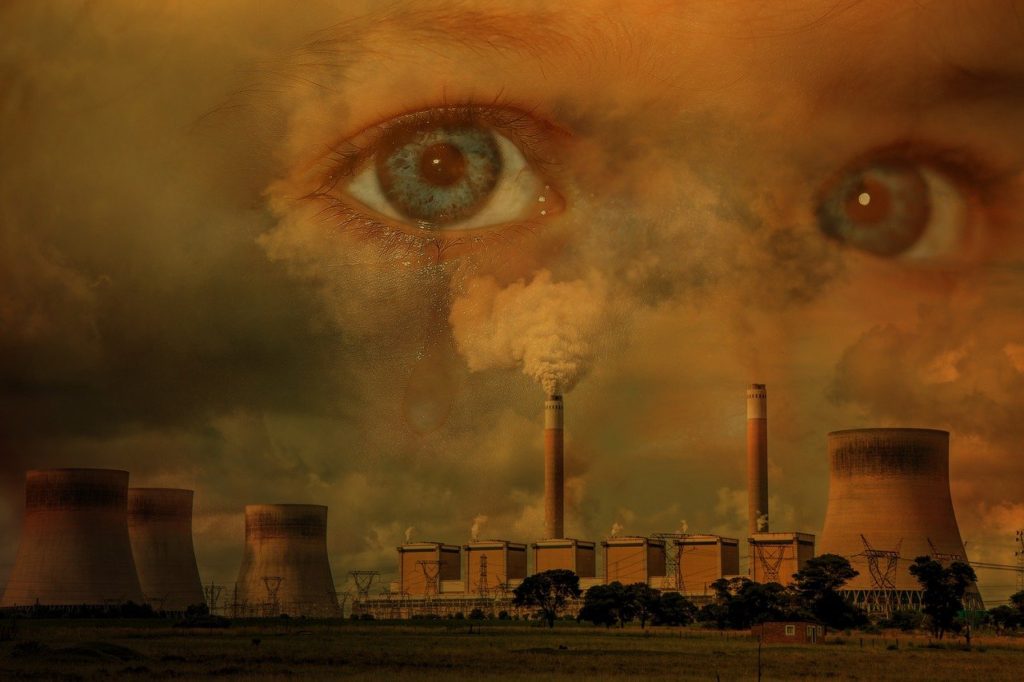
Former US President Barack Obama in his speech at the UN Climate Change Summit of 2014 had said, “There’s one issue that will define the contours of this century more dramatically than any other, and that is the urgent and growing threat of a changing climate.”
Climate change as an issue has always been one of concern but seeing how the environmental doom is becoming a reality with each passing day it becomes even more important to see what issues accompany that of climate change. To say, a lurking and constant fear of not being able to do anything for the degrading environment may be a residing fear in a whole lot of people. The American Psychiatric Association recognizes this fear as Eco-anxiety and describes it as “a chronic fear of environmental doom”.
A newsletter published by the Medical News Today Journal defines Eco-anxiety as “a fear of environmental damage or ecological disaster.” It elaborates on how this sense of anxiety is largely based on current and predicted future state of the environment and human-induced climate change. Though Eco-anxiety is not listed in the Diagnostic and Statistical Manual of Mental Disorders, however, it is identified and used by the mental health professionals within the field of Eco-psychology, “a social and intellectual movement that strives to understand and harmonize people’s relationship with Earth.” From the points listed by the American Psychiatric Association, the changing climate affects mental health in the form of trauma and shock, aggression, reduced feelings of autonomy and control, feelings of helplessness, fatalism and fear, to name a few symptoms. To look closely at the before mentioned definition, Eco-anxiety bases itself on the current and predicted future state of the environment.

India, for instance, has undergone some drastic changes in climate which can lead to a meaningful explanation of how it has given way to eco-anxiety. An article by LiveMint talks about how according to the IMD data released by the statistics ministry, “average temperatures have increased by 0.6 degrees Celsius between 1901-10 and 2000-18. At an annual level, this may seem trivial, but projections deeper into the future paint a more alarming picture.”
This onset of ‘a more alarming picture’ can somehow be traced in understanding how eco-anxiety sets in conditions like these. With close observation, one may realise that climate change may not affect everyone the same way for the underlying concern for the environment varies for every individual. Further to quote Dr A. Sugaparaneetharan, a Madurai based psychiatrist, from an article written by The Hindu, “From an evolutionary perspective, all living things want to give a healthy and protective environment to the next generation. But since we have failed to do it, we are now filled with guilt.” So even though Eco-anxiety is not the same as clinical anxiety, physicians believe that fears related to climate change can worsen or trigger pre-existing mental health problems as discussed in an article by TIME.
From what is often noted, symptoms of Eco-anxiety are more likely to be seen in young adults or people who are already suffering from a mental or physical condition, and the people who depend on their cultural heritage or livelihood as a means of defining their identity which is prone to constant threat given how the environment is not being taken care of. The Medical News Today’s published newsletter, for instance, identifies displaced people and forced migrants among groups of people who are most likely to suffer from Eco-anxiety which can be useful in understanding how something as crucial as this is co-existing with the ongoing pandemic. Taking into consideration the example of the Cyclone Amphan which made landfall over West Bengal and Bangladesh in May 2020, the aftereffects of the cyclone leading to crowded storm shelters that may lead to an outbreak of the disease is just one instance that explains the challenges that have to be dealt with while climate change and the pandemic co-exist.

According to a new report published in the journal Nature Climate Change, “the COVID 19 pandemic will be an unprecedented test of governments’ ability to manage compound risks, as climate hazards disrupt outbreak response around the world.” From what Arivudai Nambi Appadurai, a director at the World Resources Institute India, Bengaluru, said “climate change is also a ‘threat multiplier’ that exacerbates crisis like pandemics. So, all this happening while the state is already under the effect of a pandemic poses the question of how severely it can trigger mental health apart from the physical damage that is being caused. But to see what measures can be taken or are being taken to treat Eco-anxiety in real-time, one may realise that ways of dealing with Eco-anxiety remain the same as how most of the mental illnesses are dealt with, https://pixabay.com/photos/environmental-pollution-environment-4405173/that is seeking professional help. However, a more suggested measure would be to seek help from a professional trained in climate psychology.
As suggested by Jennifer Huizen in her newsletter, methods like taking actions in the form of talking to others about good environmental practices, getting educated and obtaining accurate information about the environment to empower communities and help them feel prepared and resilient if a crisis occurs and boosting self-resiliency are some measures that can be practised at an individual level to cope with Eco-anxiety.

Though, yet not treated as an official medical diagnosis, Eco-anxiety should be treated with equal importance for how it has a direct impact on our mental health. Given that mental well-being is an essential part of our daily life and plays an active role in the various aspects of our life like our participation in the community, our work and our relationships, in general, it becomes even more necessary to treat and deal the aspects related to it with utmost care to ensure a balanced sense of living.


Nice blog here! Additionally your web site rather a lot up fast! What web host are you the use of? Can I get your associate hyperlink on your host? I wish my site loaded up as quickly as yours lol
Oh my goodness! a tremendous article dude. Thanks Nonetheless I am experiencing difficulty with ur rss . Don’t know why Unable to subscribe to it. Is there anyone getting similar rss drawback? Anybody who is aware of kindly respond. Thnkx
It’s really a great and helpful piece of info. I am satisfied that you simply shared this helpful information with us. Please stay us informed like this. Thanks for sharing.
Well I definitely enjoyed studying it. This post offered by you is very useful for correct planning.
I’ve recently started a blog, the info you offer on this website has helped me greatly. Thanks for all of your time & work. “A creative man is motivated by the desire to achieve, not by the desire to beat others.” by Ayn Rand.
Just a smiling visitor here to share the love (:, btw great style and design.
Really great information can be found on weblog. “We should be eternally vigilant against attempts to check the expression of opinions that we loathe.” by Oliver Wendell Holmes.
Great work! This is the type of info that should be shared around the web. Shame on the search engines for not positioning this post higher! Come on over and visit my web site . Thanks =)
But wanna say that this is very useful, Thanks for taking your time to write this.
Very interesting information!Perfect just what I was looking for!